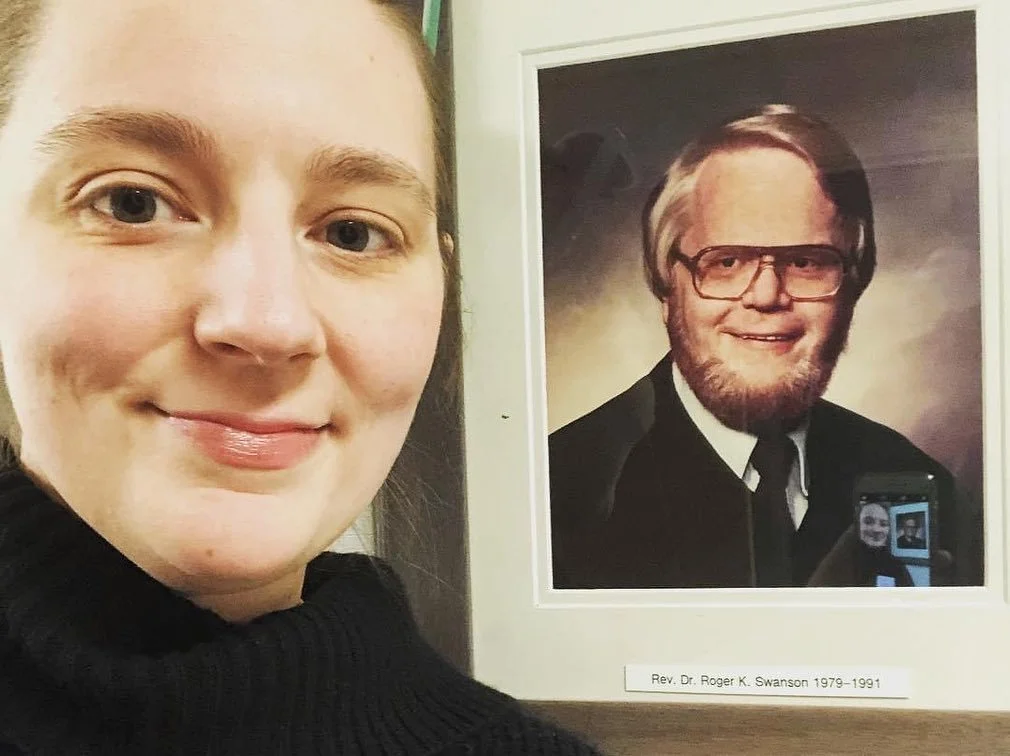Riding in Cars with Clergy
I have spent much of my life in the presence of clergy. I have worked with, worked for, been raised by, been friends with, and lived with clergy since birth.
This is not a bad thing. Clergy are a rather interesting group of people. You might expect all clergy to be essentially the same: pious and God-fearing, humble and charitable, constantly quoting scripture, meek and soft-spoken, or brash with a booming voice that fills sanctuaries. Whatever you imagine all clergy to be, you would be wrong. They come in all shapes and sizes with an enormous variety of personality, temperament, and behavior. And the clergy with whom I spend my time are quite fun, smart, and only quote scripture when it’s actually called for in the moment. They are, in other words, regular people.
There is at least one hazard, though, of spending this much time around clergy. They have a tendency, particularly in times of struggle, to say helpful and often profound things. It is literally part of their job to communicate and teach in a moving and meaningful way, so they have a knack for turning a regular conversation into a thought-provoking, soul-searching type of situation. This doesn’t happen all the time. They are, as I said, regular people and therefore fully capable of normal conversation, but every now and then they just whip out some words that stop you in your tracks. The hazard in being around this all the time is that you start to expect profound things to come out of your own mouth.
My dad is clergy and I couldn’t even quantify all of the meaningful things I’ve heard him say (although I’ve also heard him say silly and ridiculous things in equal measure so it balances out). Whether through his sermons, conversations at home or on car trips, or the eulogies he gave at his own parents’ memorial services, my dad has floored me with words more than once. That is beyond cool to experience, but it is also dangerous. The desire to be able to do the same things is powerful; I want to say the things that makes people think, gives them peace, or makes them laugh.
Which does not, for the record, mean that I want to be a preacher. In my case it mostly means I like attention and I like sounding smart, but I digress.
Along with my sister, I have spoken at the memorial services for two of my grandparents. When Pop-pop died we were a shade too young and inexperienced with grief to speak at his service, but for each of our grandmothers we put together our thoughts on our experience as their grandchildren. They were mostly memories, things we learned from them, things we remember and treasure. But for each of those services I remember a deep desire to say something poignant. I don’t know if that was achieved, but I know that by the end of each service I felt better knowing that we had shared our impressions of the real person who was gone, but not forgotten.
Grampy’s memorial service is this week and so once again I am slowly organizing my thoughts around what I want to say, to share about my grandfather. He was clergy and there are phrases that stick in my head that I heard him say decades ago, but the meaning stays with me to today. With Grampy most of all it feels important to make a strong statement, to be meaningful and throught-provoking and to wow the assembled mourners because that is what he would have done.
But there is something else that I learned from all these clergy that I hang around with. Funerals and memorial services are not for the dead. They honor the dead, sure, but by the time the service happens that person has moved on. With the exception of Tom Sawyer, Huck Finn, and the wildly wealthy and/or eccentric few, people do not generally attend their own funerals. In reality, funerals are for the people left behind: to mourn, to share, to lean on each other. And so that is all I have to worry about when I figure out what I want to say: what I can say that will help myself and my family in the grieving process. It doesn’t have to be great oratory that blows the doors off the sanctuary, it doesn’t even have to be meaningful to everyone in the room. It should simply be an honest reflection on my memories of my grandfather and the things he gave me that are part of who I am.
But if I can think of a good joke you bet I’m throwing that in there.
